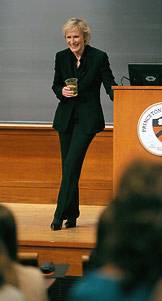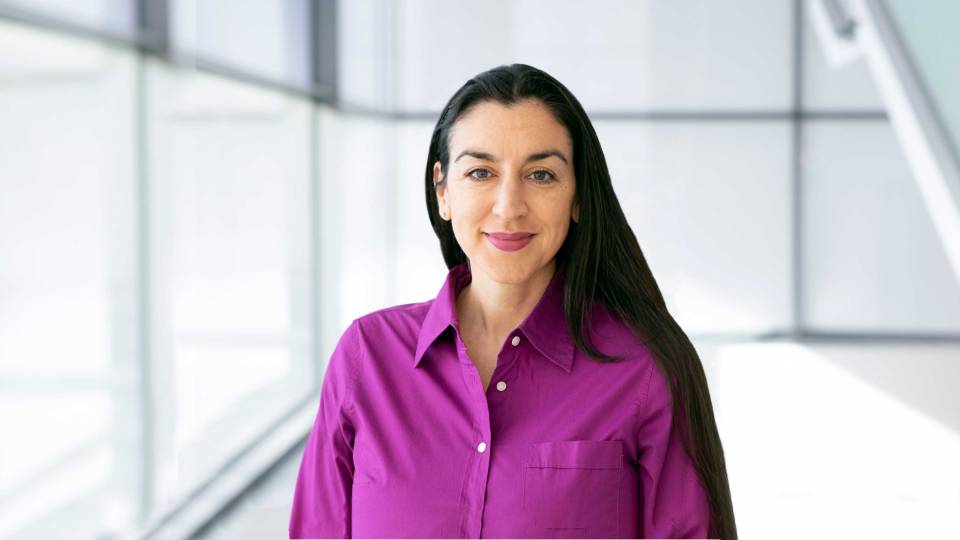To inhabit the roles they play, actors must "love their characters unconditionally," Glenn Close said Thursday night in a speech about her acting career.
The screen and stage actress talked about her childhood, her relationship with her father and how she connected with some of the well-known characters she has portrayed, including Alex in "Fatal Attraction" and Teddy in "Jagged Edge."
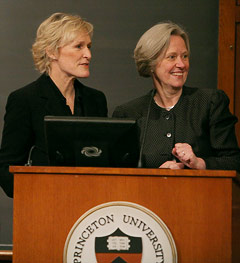
Princeton President Shirley M. Tilghman introduced Close and assisted with a question-and-answer session following her lecture.
"I've always felt that in order to truly commit to a character and do her justice, to find her truth, I must love her no matter what the behavior," she said. "I have to find some common point of humanity."
Nevertheless, Close told the audience at McCosh 50 in a talk titled "Are You Who We Think You Are?," "I am not any of the characters you have seen me play."
Her mother, she said, wanted fairness whether it was acting or not, observing, "It's all right if your characters behave badly, as long as they're eventually punished for it."
Close is an award-winning film, television and theater actress. She has been nominated for Academy Awards for her roles in the films "Dangerous Liaisons," "Fatal Attraction," "The Natural," "The Big Chill" and "The World According to Garp." Her current role in the television series "Damages" has earned her an Emmy and a Golden Globe award.

Close talked with students after her speech, in which she paid tribute to her father, who died earlier this month at the age of 84, as "a remarkable man, a passionate, passionate doctor."
To play the role of Alex in "Fatal Attraction," a woman who terrorizes her lover's family, Close sent the script to two psychologists to ask if the character's behavior was possible, she said. They confirmed that it was possible for a victim of incest, which Close used to understand the character.
Close also described her frequent phone calls to her father, a physician, to ask medical questions related to her on-screen roles.
For the film "Jagged Edge," Close recalled asking her father, William Close, "If I shoot somebody point blank, do I get covered in blood?"
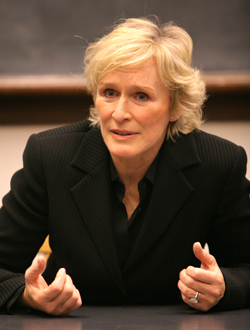
Close, who also spoke to media following the talk, told the audience earlier, "I am not any of the characters you have seen me play."
Close paid tribute to her father, who died earlier this month at the age of 84, as "a remarkable man, a passionate, passionate doctor." He spent 17 years working as a physician in the Congo, serving at one time as chief doctor of the army during the first Ebola epidemic, which he helped to control. He later returned to the United States and fulfilled what Close called her father's "original calling to be a country doctor," spending 33 years as a rural physician in Wyoming. "He went on his last house call three days before he died," Close said.
Close reminisced about her "magic" childhood in Greenwich, Conn., "in my memory a seemingly endless summer," she said. "Our catchphrase was, 'Let's pretend.' ... I have no doubt that the days I spent running free in the evocative Connecticut countryside with an unfettered imagination, to play whatever character our games demanded, is one of the reasons why acting has always seemed so natural to me. I just never wanted to stop playing. Living in my imagination is nothing that I've ever had to work at."
Close's lecture was sponsored by the University Public Lecture Series as part of the J. Edward Farnum Lectures. It will be archived for later viewing on the WebMedia site.
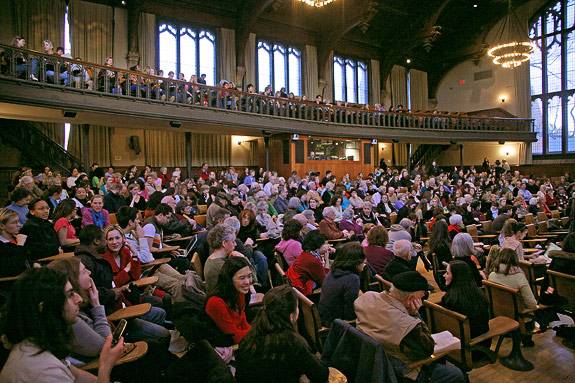
The crowd awaited the arrival of Close in McCosh 50.
